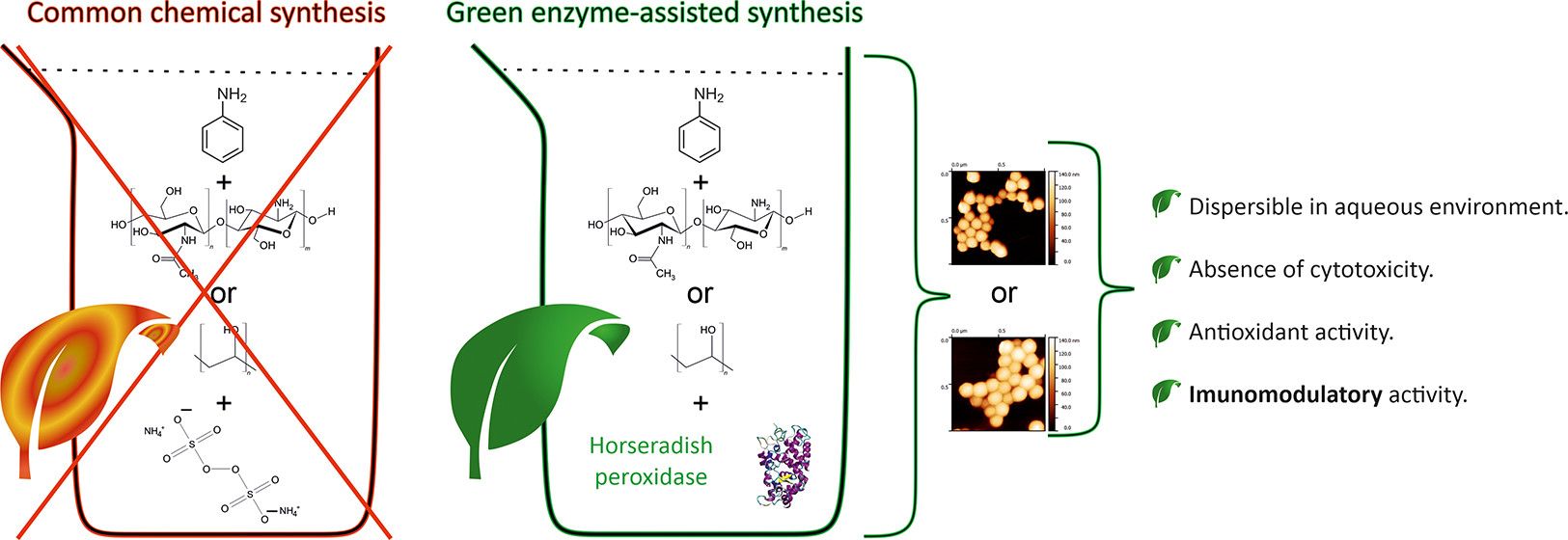A new, environmentally friendly method of polyaniline synthesis
Currently, electrically conductive polymers are the subject of intense research as they present attractive materials with broad application potential in a number of sectors, including biomedicine. The same research has been underway at the Centre for Polymer Systems (CPS) of Tomas Bata University (TBU) in Zlín, where the respective group focuses on the preparation and characterization of biomaterials, especially for the functionalization of their surfaces. ‘Biomaterials’ refers to materials designed to come into contact with living organisms; modifying them with conductive polymers allows the creation of a conductive yet biocompatible surface, which can positively and specifically influence cell behaviour.
Examples of the most commonly studied conducting polymers include polyaniline. Polyaniline is typically prepared by chemical synthesis, which specifically involves polymerising aniline monomer using ammonium persulfate as a catalyst. However, this process not only raises questions of biocompatibility but also poses a notable environmental burden. CPS scientists came up with a solution. The TBU’s Biomaterials and Biocomposites Research Team was able to develop an environmentally friendly synthesis of polyaniline under laboratory conditions. It is a colloidal form of the compound combining polyaniline with biopolymeric carriers. “The oxidation of aniline was catalysed enzymatically by horseradish-derived peroxidase. Biocompatible polymers, such as chitosan or poly(vinyl alcohol), were also included in the synthesis process as steric stabilisers for the formation of colloidal polyaniline particles, which are dispersible in aqueous media without the use of organic solvents,” explains Dr. Jasenská, who addressed this topic in her doctoral thesis.
Published this year in the prestigious journal Biomacromolecules, the study documents that enzymatically polymerised colloidal polyaniline particles exhibit antioxidant activity and anti-inflammatory effects in addition to good biocompatibility. “The polyaniline particles prepared by our team may be particularly advantageous as active components of biomaterials that alleviate inflammation in its early stages,” concludes doc. Věra Kašpárková, the mentor of the research group.

